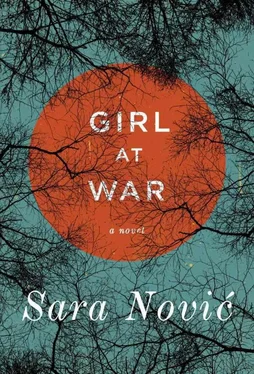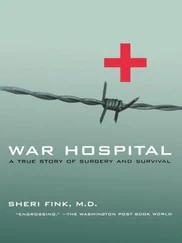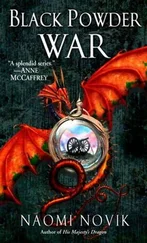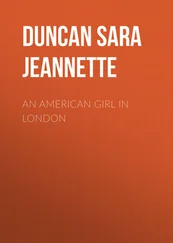My mother began to scream. Somehow it was easier to watch the needle. I uncrumpled the paper and shredded it, the scraps falling to the floor.
My father forced my mother down into the room’s single chair. The doctors turned Rahela back over, shot her with pain medication, gave her a pacifier. She looked comfortable for the first time in months.
“All right then,” said Dr. Carson, placing a hand on my mother’s shoulder. For a moment I saw what looked like sadness flicker across the doctor’s face, but it was gone quickly. “Here are the forms for Rahela’s transport to the Children’s Hospital of Philadelphia. They have some of the best pediatric specialists for renal failure in the world. We’ll have her on the plane as soon as she’s stable.” Dr. Carson gestured to the second of two piles of paperwork on the counter. “And here are the foster family consent forms.” My father looked up and my mother lowered her eyes.
“Foster family?” my father said. “Dijana, what is she talking about?”
Dr. Carson jiggled some change in the pocket of her lab coat. “Your wife informed me that your visas were denied?” she said, pausing for my father to affirm this statement. He didn’t. “Rahela will be admitted to the hospital upon her arrival, where she’ll be housed in the intensive care unit.” Dr. Carson was gaining speed now, employing the most professional of the range of tones in which we’d heard her speak. “However, after emergent care is completed, there is an outpatient treatment portion, for weekly dialysis and examinations.”
“Outpatient?”
“Rahela will stay with a volunteer emergency foster family until her program at the hospital is complete. Rest assured that all foster families are screened for safety by MediMission—”
“I thought you people were just going to fix her! Fix her and send her home!” The vein in my father’s neck, the one that usually signaled that I’d done something wrong and was going to get a whack with a belt, had bulged out precariously far, banging along with the rhythm of his heart. I shied away instinctively, but all the anger and frustration instead compacted into a single tear that passed over his cheek. It was the only time I’d ever seen him cry. “I can’t even take care of my own children,” he said.
Dr. Carson tried for a reassuring smile, but it came off lopsided. “You are taking care of her. This is the only way Rahela will get better.”
“Fuck off,” said my father.
“I’ll wait outside so you can say goodbye.”
I stared at my sister. For once she was quiet. Her eyes were glassy and she looked deep in thought or far away, as if she had already crossed the ocean. I wished I knew more about her and less about the patterns of her sickness. She was so small, so busy surviving that we hadn’t gotten the chance to be like other sisters, but her hands still fit well in mine. I hoped her foster family in America would be kind, would tell her stories and take her to the park and sing to her.
“We’ll see you soon, baby,” my mother was saying over and over. My father put his hand on Rahela’s head, ran his fingers through the black hair that was beginning to curl, and said nothing.
“When you get back I’ll teach you everything,” I whispered to her. “How to walk and talk and color and ride a bike. And everything will be good.”
Outside, my mother sobbed so ferociously that she got dizzy and had to sit down on the curb. My father sat next to her and rubbed her back.
“I’m sorry I didn’t tell you sooner,” my mother said. “I didn’t want you to get upset. This is the best we can do.” When her breathing steadied, we got in the car and drove out of the city.
At border control a meaty guard checked our documents dispassionately, becoming suspicious only when he came to Rahela’s picture. Babies had no passports of their own, only pages within their mothers’.
“And your daughter?” he asked.
“She’s with her grandmother,” my father said. Both my grandmothers had been dead for a decade, and though I knew it was a lie designed to simplify, I didn’t like its implications. The guard handed our passports back through the window, and my father snapped the rubber band tight around them and stretched across my mother’s lap to stow them in the glove compartment. The guard waved us through the crossing.
We drove in unbearable silence. I ached for the distraction of staticky music, talk radio even. When I thought of Rahela on her way to America an unexpected emotion welled up in me: relief. Then, when I recognized the feeling, shame. What was wrong with me? I was supposed to be sad. I forced my eyes shut in hopes of squeezing out a tear, and got one or two before my forehead lit up with a jagged ache from all the clenching.
“Mama, I need some water,” I said, half because of the headache and half from the desire for my parents’ full attention, something unattainable since Rahela had been born. My mother sighed and turned to look at me, her face contorted with such anguish that immediately I wanted to say never mind, that I was okay. But my father, as if he’d been waiting for an excuse to stop, had already veered toward a derelict gas station. A huge piece of arrow-shaped particleboard had been nailed to the abandoned pumps. TRUCK STOP, it read in unpracticed permanent marker scrawl.
We passed a mechanic’s garage, graffitied and doorless, and pulled into the car park of a building labeled, a bit more carefully than the first sign, RESTAURANT. It was a bucolic structure; the wood was stained black but maintained its treelike properties — the imperfect curvature of trunks, the knots and whorls of unfinished planks. The gravel lot was completely empty.
Inside was a single room with high-beamed ceilings and picnic tables. We approached the cafeteria-style counter and collected orange trays and rolls of tin silverware. There was no menu, just a few steaming pots on the line. A woman in a dirty apron appeared from the back and eyed us cagily.
“How’d you get down this way?” she asked.
“What do you mean?” my father said. “Aren’t you open?”
“This place is always full at supper. The roads must be closed.”
“We came down from Zagreb to Sarajevo, now back. They were clear.”
“They must be closed,” she said, beckoning at our trays. We handed them to her and she slopped down bowls of dense bean soup and hunks of bread. Next to the cash register, thick glass mugs of soured milk perspired, leaving wet patches on an adjacent napkin pile.
“And three of those,” my father said, gesturing to the drinks.
“I don’t want any. It’s bitter,” I said.
“It’s good for you,” he said, taking my mug onto his tray.
At home my mother always cooked, and it was the first time I could remember going to a restaurant. I ate greedily, sopping up the beans with my bread, even downing the tangy milk in the end. My mother ate nothing.
“Do you think the roads are really closed?” my mother asked as we returned to the car.
“We were just there a few hours ago,” my father said, though I noticed him glance at his watch. “It’ll be okay.”
—
We drove for an hour, then two, passed signs for Knin and Ervenik. A pickup truck in the opposite lane flashed his headlights at us.
“Slow down. There must be cops,” my mother said. My father braked and another car appeared, this one driving much faster, laying on his horn as he went by. “Maybe we should turn around.”
“There’s no space for a U-turn,” my father said, looking around. But as we rounded the corner the roadblock came into view. “Shit. Shit .” I pulled myself up and rested my head atop the driver’s seat to get a better look. A cluster of bearded men stood talking and laughing in the road. They wore mismatched fatigues, shoulder-slung ammo belts, and black sword-and-skull arm patches. They had cut down a large tree, which prevented passage on our side of the road. The other side was blockaded with sandbags.
Читать дальше












